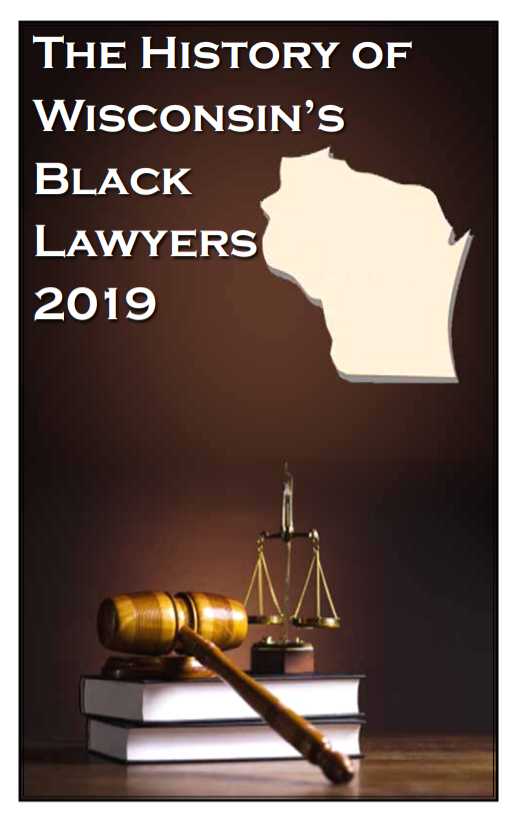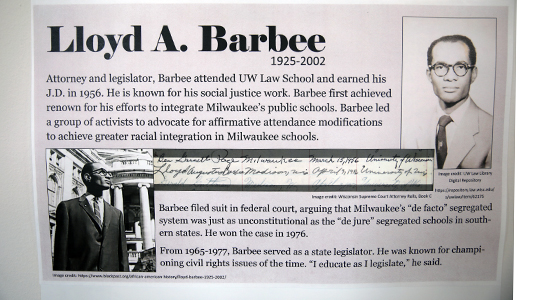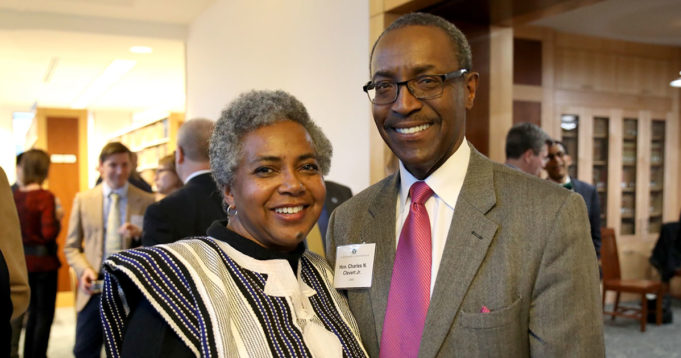The newly published booklet, “The History of Wisconsin’s Black Lawyers 2019,” details the histories of 11 black Wisconsin attorneys from the late 1800s through the 1960s and a brief history of black legal organizations in Wisconsin. It also lists a roster of Wisconsin black lawyers from 1888 to 2018.
The book is the culmination of research by members of the Wisconsin Association of African-American Lawyers (WAAL), and was celebrated at an event on Feb. 25 at the State Law Library in Madison, sponsored by the State Bar of Wisconsin, WAAL, the U.W. and Marquette law schools, the Wisconsin State Law Library, and Husch Blackwell.

“It is with a profound sense of pride, honor, and love, that we have documented the stories and the names of the black lawyers of Wisconsin,” said Cudahy attorney Celia Jackson, organizer and planning committee member.
They were the trailblazers in Wisconsin who opened many paths into the legal profession for black lawyers.
‒William T. Green, a one-time janitor at the State Capitol building, was the first black graduate of U.W. Law School and the first black lawyer to argue a case before the Wisconsin Supreme Court. Howell v. Litt, an 1890s suit, led to the creation of the Wisconsin Civil Rights Act of 1895.
‒Ambrose Benjamin Nutt, a World War I veteran as well as a lawyer, was the first president of the Milwaukee Urban League in 1919, and he spent his life fighting against injustice.
‒Mabel Watson Raimey was Wisconsin’s first black woman lawyer, attending Marquette Law School and passing the bar in 1927 – one first among many in her lifetime.
‒In 1971, James E. Jones became the first black faculty member at the U.W. Law School – teaching labor law and arbitration for nearly 30 years.
‒Clarence Parrish, in 1981, was the first African-American to win a contested judicial race in Milwaukee County.
Documenting the history and accomplishments of black lawyers and black lawyer organizations is vitally important, said former Justice Louis Butler, because otherwise this rich history will be lost as those who lived it pass away.
“We’re talking about the people who came behind us, keeping that door open for us,” Justice Butler said. “We don’t want the young lawyers coming up to lose this history.
“If we don’t get this history down now, there’s nobody there who is going to remember the things that we’ve accomplished,” he adds.
Jackson, who was a catalyst for the project, organizing the information as well as the contributors, said the idea began at a WAAL meeting three years ago.
The project began small, Jackson said, starting with drafting a more complete record of the organizational history of WAAL and its predecessors, the Wisconsin Black Lawyers Association (WBLA) and the Wisconsin Association of Minority Attorneys (WAMA).
“Of course, when you have a number of great legal minds coming together,” ideas gather and grow, Jackson said. Researchers began looking as far back as the late 1800s to find the history of as many black lawyers in Wisconsin as they could.

The committee members turned to the Wisconsin Black Historical Society and Museum in Milwaukee, family members and descendants of these early lawyers, the works of attorney and black legal historian J. Clay Smith Jr., and the records of the U.W. and Marquette law schools, among other sources.
In doing the research, “we became more acquainted with the journeys, struggles, and triumphs of the attorneys who came before us and whose shoulders we stand on,” Jackson said.
Jackson said the committee is seeking more stories of the Wisconsin’s black lawyers, who have contributed to Wisconsin’s legal community in ways as yet unknown. “There are many unsung heroes in this world,” Jackson said. “We urge you to embrace this history, and seek ways to enhance it.”
Such history is vital for all State Bar members to know, said State Bar President Jill Kastner. It helps us to know about those who came before us, and to help us understand that they didn’t have a road laid out for them. “They blazed that trail,” Kastner said. “We who see barriers today – especially leaders in the legal community – have an obligation to honor those who have removed barriers in the past, and to look for the barriers still there and dismantle them.”
The booklet is archived on WisBar.org, along with other legal history resources, including the history of Wisconsin’s First 150 Women. Read more about pioneering black lawyers in an article by Celia Jackson published in the May 2019 issue of Wisconsin Lawyer™ magazine.










